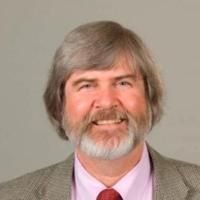Novel Treatment of Cryptococcal Meningitis via Neurapheresis Therapy.
Date
2018-08
Journal Title
Journal ISSN
Volume Title
Repository Usage Stats
views
downloads
Citation Stats
Attention Stats
Abstract
Cryptococcal meningitis (CM) has emerged as the most common life-threatening fungal meningitis worldwide. Current management involves a sequential, longitudinal regimen of antifungals; despite a significant improvement in survival compared with uniform mortality without treatment, this drug paradigm has not led to a consistent cure. Neurapheresis therapy, extracorporeal filtration of yeasts from cerebrospinal fluid (CSF) in infected hosts, is presented here as a novel, one-time therapy for CM. In vitro filtration of CSF through this platform yielded a 5-log reduction in concentration of the yeast and a 1-log reduction in its polysaccharide antigen over 24 hours. Additionally, an analogous closed-loop system achieved 97% clearance of yeasts from the subarachnoid space in a rabbit model over 4-6 hours. This is the first publication demonstrating the direct ability to rapidly clear, both in vitro and in vivo, the otherwise slowly removed fungal pathogen that directly contributes to the morbidity and mortality seen in CM.
Type
Department
Description
Provenance
Subjects
Citation
Permalink
Published Version (Please cite this version)
Publication Info
Smilnak, Gordon J, Lefko T Charalambous, Drew Cutshaw, Alykhan M Premji, Charles D Giamberardino, Christi G Ballard, Andrew P Bartuska, Tiffany U Ejikeme, et al. (2018). Novel Treatment of Cryptococcal Meningitis via Neurapheresis Therapy. The Journal of infectious diseases, 218(7). pp. 1147–1154. 10.1093/infdis/jiy286 Retrieved from https://hdl.handle.net/10161/23249.
This is constructed from limited available data and may be imprecise. To cite this article, please review & use the official citation provided by the journal.
Collections
Scholars@Duke

Huaxin Sheng
We have successfully developed various rodent models of brain and spinal cord injuries in our lab, such as focal cerebral ischemia, global cerebral ischemia, head trauma, subarachnoid hemorrhage, intracerebral hemorrhage, spinal cord ischemia, and compression injury. We also established cardiac arrest and hemorrhagic shock models for studying multiple organ dysfunction. Our current studies focus on two projects. One is to examine the efficacy of catalytic antioxidants in treating cerebral ischemia, and the other is to investigate the effectiveness of post-conditioning on the outcome of subarachnoid hemorrhage-induced cognitive dysfunction.
We are a part of the NIH Stroke Preclinical Assessment Network (SPAN).

John Robert Perfect
Research in my laboratory focuses around several aspects of medical mycology. We are investigating antifungal agents (new and old) in animal models of candida and cryptococcal infections. We have examined clinical correlation of in vitro antifungal susceptibility testing and with in vivo outcome. Our basic science project examines the molecular pathogenesis of cryptococcal infections. We have developed a molecular foundation for C. neoformans, including transformation systems, gene disruptions, differential gene expression screens, and cloning pathogenesis genes. The goal of this work is to use C. neoformans as a model yeast system to identify molecular targets for antifungal drug development. There are a series of clinical trials in fungal infections which are being coordinated through this laboratory and my work also includes a series of antibiotic trials in various aspects of infections. Finally, we have now been awarded a NIH sponsored Mycology Unit for 5 years with 6 senior investigators which is focused on C. neoformans as a pathogenic model system, but will include multiple areas of medical mycology from diagnosis to treatment.

Shivanand Lad
Dr. Nandan Lad is a neurosurgeon, scientist, and entrepreneur and Professor and Vice Chair of Innovation for Duke Neurosurgery. He is Director of the Functional & Restorative Neuromodulation Program and the Duke NeuroInnovations Program, a systematic approach to innovation to large unmet clinical needs.
He completed his MD and PhD in Biochemistry at Chicago Medical School and his neurosurgical residency training at Stanford with fellowships in both Surgical Innovation and Functional Neurosurgery.
Neuromodulation; Neurorestoration; Bioengineering; Medical Device Design; Clinical Trials; Data Science; Health Outcomes.
Unless otherwise indicated, scholarly articles published by Duke faculty members are made available here with a CC-BY-NC (Creative Commons Attribution Non-Commercial) license, as enabled by the Duke Open Access Policy. If you wish to use the materials in ways not already permitted under CC-BY-NC, please consult the copyright owner. Other materials are made available here through the author’s grant of a non-exclusive license to make their work openly accessible.
